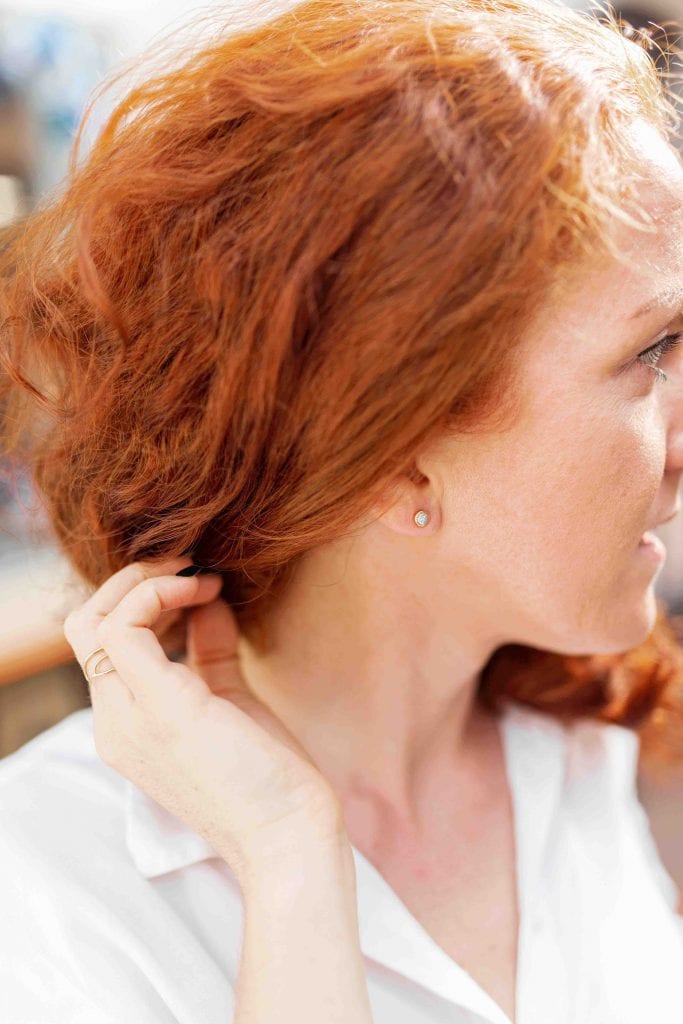Sustainable Jewellery offers a way to express yourself without saying a word. The right pieces can pull together an outfit or celebrate your cultural heritage.
However, you don’t want your accessories to cause human suffering or deplete the planet of necessary resources. Therefore, you want to do your research before making a substantial purchase. Here’s a 5-step guide on how to find sustainable jewellery that will help you add to your collection with a clear conscience.

1. Evaluate the Materials
Mining for precious metals always involves some environmental impact. However, you might be surprised to learn that several of the materials commonly used in jewelry production aren’t as harmful to the planet as the processes used to mine those used to power cars and homes.
For example, gold mining doesn’t require crews to destroy mountains the way coal mining does. Nor does it risk the massive spills that oil creates. It does result in brackish water containing arsenic and other potentially harmful contaminants. However, federal regulations require mining companies to filter this water until it is purer than the mountain streams in which they release the remainder.
Stainless steel, likewise, offers considerable sustainability benefits. It consists of naturally occurring minerals like nickel and chromium. Once miners extract these elements, manufacturers can recycle them nearly indefinitely — your kitchen butter knife might have begun life as a pair of scissors.
However, other materials frequently seen in jewellery, particularly gemstones, pose ethical concerns. The diamond industry established the Kimberley Process in 2003, a certification system intended to assure consumers that they were not purchasing blood or conflict diamonds. This term refers to gems mined in African war zones, often by forced labor.
Despite this process, many diamonds on the market today nevertheless originate from high conflict areas. Others are mined off the backs of young people living in desperate poverty. Finding a single rock can fuel many dreams — but in the meantime, workers often accumulate high debts that rob them of the benefit of their labor if they do strike it lucky.
All mining does create an environmental impact. Consumers need to keep in mind that the regulations enacted to protect the land and waterways in one country do not apply globally and choose their products wisely.
2. Talk to the Jeweller
One way that consumers can do their due diligence is to speak with their jeweler. After all, most jewelry purchases entail a considerable expense. You should seek out a reputable establishment where the sales staff takes the time to answer your questions about where your items originate.
Please don’t assume that the sales representative won’t know much — it’s their job to discover this data. Your jeweler should have considerable information on each piece you select. They need to for appraisal purposes. It’s always wise to insure your purchase, and your jeweler must perform this evaluation to ensure you fair rates.
3. Seek Secondhand Treasures
One of the elements of a zero-waste lifestyle is reusing old items instead of purchasing new ones. When it comes to jewellery, this practice adds significant sentimental value. How many people wear wedding rings that were passed down in their family generation after generation?
Because of the appraisal process and the permanence of the material, jewellery tends to hold its value over time. Therefore, you won’t necessarily find bargains by seeking this route. However, sometimes, you can get lucky.
You could scour pawn shops in search of the perfect deal, although you might think twice about jewellery that someone had to sell in desperation. If you find that idea unpalatable, you can search estate sales. Your jeweller likewise probably has a collection of restored items available for purchase.
4. Research Brands Online
The internet is better than a full set of encyclopedias at your fingertips when it comes to research. You can investigate brands online before you make your purchase decision.
For example, brands like Soko encourage suppliers in Kenya to become entrepreneurs. Others, like Catbird, use recycled gold and conflict-free, ethically sourced stones.
5. DIY
Finally, jewellery doesn’t have to be pricey to make a statement. You can make many items yourself at home. If you become talented at your craft, you could even start a lucrative side hustle on sites such as Etsy.
You can find jewellery-making supplies at discount and craft stores. Since you are the supplier, you still have to perform due diligence in choosing your materials. Search for recycled glass beads instead of opting for plastic that could end up in the oceans.
Find Sustainable Jewellery — It’s Worth It!
You want to accessorise your gorgeous self, but not at the expense of the planet or human rights. Try following the simple five tips above to find sustainable jewellery!
Photography by Olivia J Lennon




